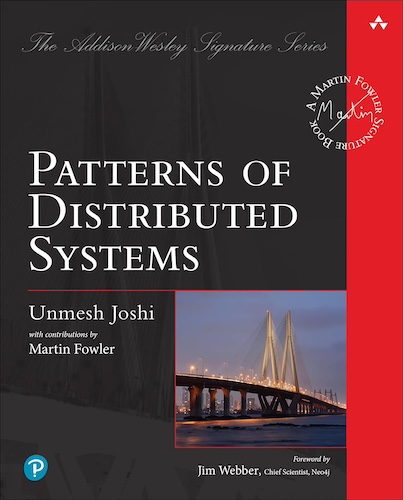Versioned Value
Store every update to a value with a new version, to allow reading historical values.
Problem
In a distributed system, nodes need to be able to tell which value for a key is the most recent. Sometimes they need to know past values so they can react properly to changes in a value.
Solution
Store a version number with each value. The version number is incremented for every update. This allows every update to be converted to a new write without blocking a read. Clients can read historical values at a specific version number.
for more details go to Chapter 17 of the online ebook at oreilly.com
This pattern is part of Patterns of Distributed Systems
23 November 2023

